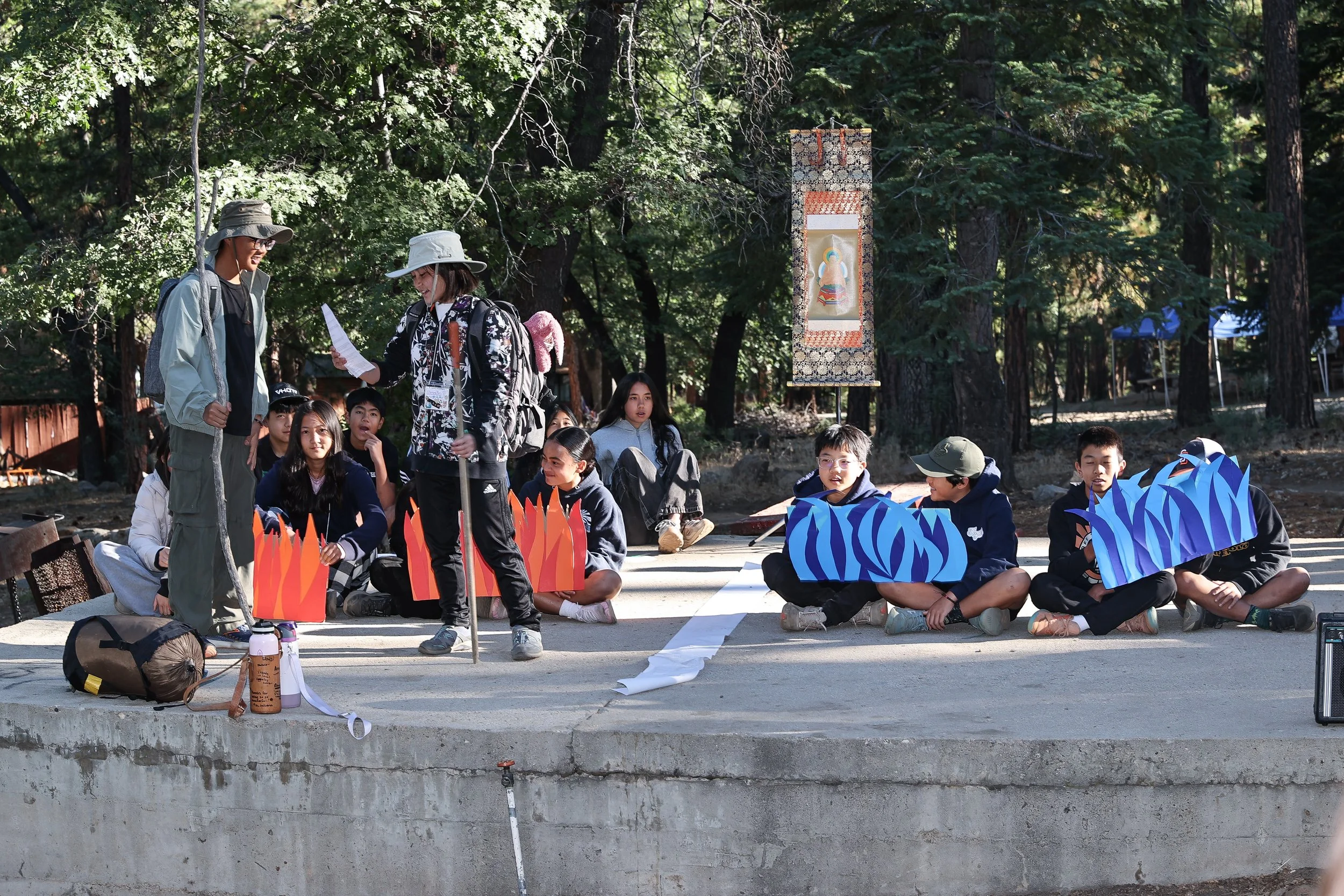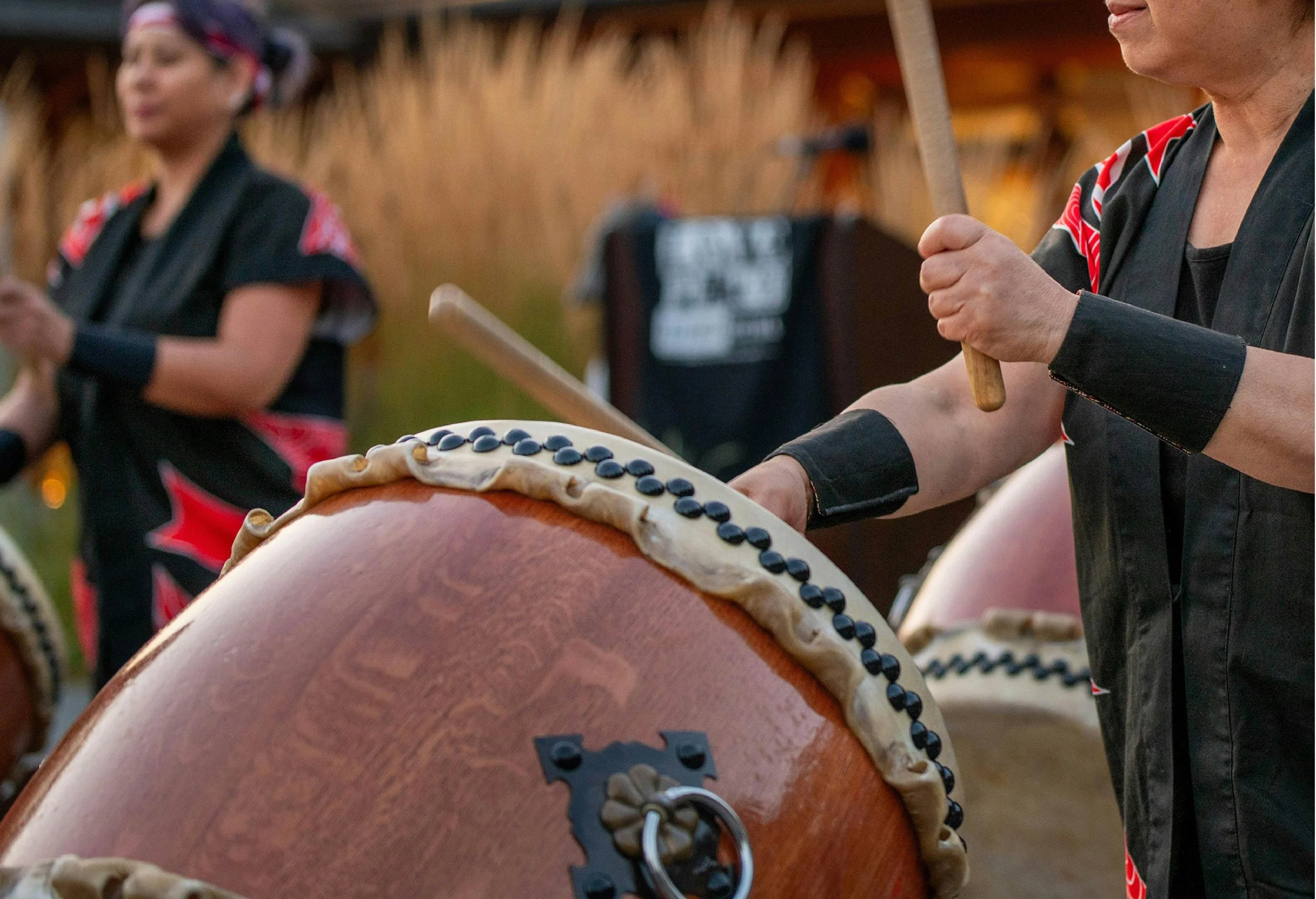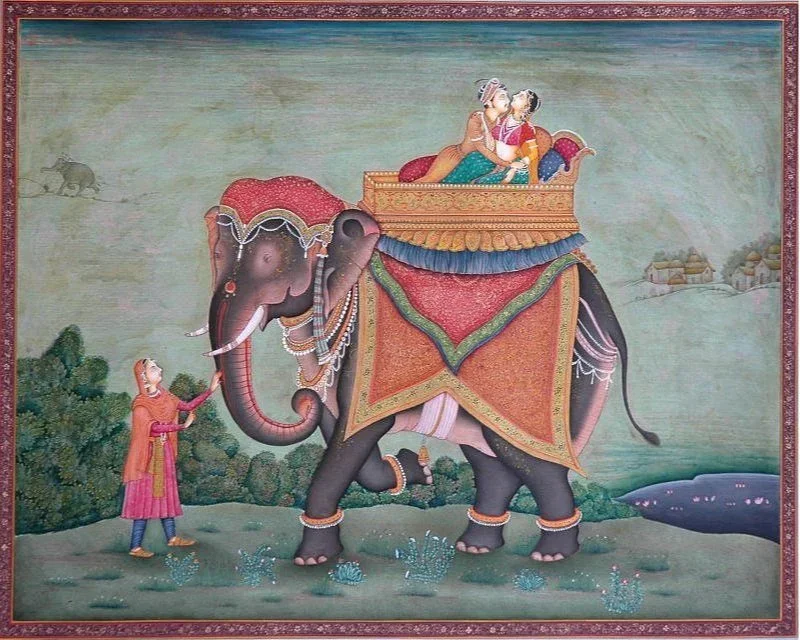
Crossing the ‘River of Fire, River of Water’
In some ways, going to camp is akin to the journey of the traveler in the famous parable “River of Fire, River of Water,” written 1,400 years ago by Chinese Master Shan Tao. Campers don’t face rivers of fire or water, but it is nonetheless a challenging situation, especially for the first time. There is often the fear of a new situation, away from the comfort and security of home and family, and the stress and uncertainty of encountering new and challenging tasks.

Shin Buddhists Deeply Listening
On Friday evening, August 16th, we all enjoyed the vibrant sounds of the Seishun Taiko fall concert. It was a wonderful performance. Each piece expressed the performers’ joy of playing together, as they listened closely to one another’s sound. This experience reminded me of the essence of Shin Buddhist practice—learning the difference between simply hearing and truly listening.

All Things Are Made to Be So
A seed does not choose to bloom, nor do we make it bloom by will. It blooms jinen—of itself—through a greater working beyond our control. Likewise, our spiritual awakening unfolds through Amida’s Vow, embracing us just as we are.

Making a Process for the New Year
Every January, I notice a sudden increase in the number of runners in my neighborhood. The surrounding gyms and health clubs are also suddenly packed with nowhere to park. And then I remember that we have just celebrated New Year’s Eve. These are all the people who made resolutions to get healthy. Most will be gone by February; both the runners and the parking lots will have cleared out until next year.

Imagining Awakening
When we look at the way the teachings have been shared through time, we see the Buddha used imagination constantly to open the heart, to shift perception, and to awaken compassion and wisdom. How can we use imagination in our practice today?

That’s Not What I Heard: Reframing the Audience of the Buddha’s Teachings
It turns out that there four different groups of Buddhist followers that have existed since the Buddha’s time. There were the male monastics and the female monastics and the male and female householders. Giving us four distinct communities, each with their own set of concerns. When the Buddha taught, he would focus his teachings to address the needs of these different groups.

Who is Saying the Nembutsu?
Since 2023, I have been attending a study group in Japanese hosted by Rev. Wondra. And in every class, one question kept coming up: Who is saying the Nembutsu? How does Namo Amida Butsu come out of my mouth?

Bodhi Day
I hope that we can all take the time to reflect on what a Bodhi Day would mean within our own lives. What a wonderful New Year’s resolution this would be, to reorient our lives towards practice and follow the Way. This is how we can all have a truly happy New Year for both ourselves and for those all around us.

Five Thanks Givings
When we first begin to come to temple, we do not say “Namoamidabutsu”. This is because we have never been taught how or why, and we don’t know what it means. But over time, after being reminded many times, it begins to feel more comfortable to say it. It takes time but we move from not saying it, to saying when prompted and then on to saying it on our own. And then we begin to mean it. We feel it in our hearts and mind.

That Is Not What I Thought
Once you become aware that “We create the world with our mind”, it can become quite humorous. And you begin to wonder how many times have I confused opinions for facts? This realization can begin to soften our judgements and the rigidity of our thinking. I would like to share a personal example.

Mantras & Speech Act Theory
“Namoamidabutsu” is much like the phrase “I love you” which also communicates a state of mind. It is both an emotion and an experience. It has an overwhelming effect on both the speaker and the listener. It acknowledges a shared reality between two people. As does “Namoamidabutsu” between the speaker and reality itself. An oral tradition that dates all the way back to the Buddha’s India.

Rx for Insight
Early on in my career, I felt like a superhero. Full of knowledge and ready to help all of the patients that would come by. As I matured, I began to have a different perspective. I have learned that often, I gain as much from my patients as I am able to help them. Through my patients, I am often reminded of the teachings of Buddhism.

Outside-In
There is another perspective. It is one of appreciating our “external causes” and realizing their benefits. As we listen to the teachings and interact within a Sangha, our perspectives and viewpoints begin to soften. Buddhism is something that is now happening to us rather than for us. We are receiving benefits rather than achieving milestones, rank or status.

Human Beings, Feeling Beings
What one person finds delightful, another may see as disgusting. We use these differences to dividing ourselves into groups, but how can we come together in a climate where people are so divided?

A Fresh Way to Look at the Four Noble Truths
I was happily working my way through my online video course at Everyday Buddhist, when Jon Turner Sensei pointed out that the Buddha saw the human condition as a “seeing problem” causing a person to “not feel right“. As a practicing physician, the parallel with medical diagnosis and treatment was intriguing to me, and it gave me a new way to look at the Four Noble Truths.

A Path to Universal Liberation - Part 3
In a world increasingly marked by division, whether due to socioeconomic status, gender, race, or political beliefs, Amida’s vow to liberate all beings without distinction is especially relevant.

A Path to Universal Liberation - Part 2
Understanding Amida Buddha’s wisdom and compassion, first from a fundamental Buddhist perspective, then from Shinran’s interpretation, provides an invaluable foundation for reflecting on how the Buddha’s teachings resonate with contemporary society.

A Path to Universal Liberation - Part 1
Understanding Amida Buddha’s wisdom and compassion, first from a fundamental Buddhist perspective, then from Shinran’s interpretation, provides an invaluable foundation for reflecting on how the Buddha’s teachings resonate with contemporary society. In today’s world, where people struggle with feelings of inadequacy, isolation, and despair, the message of Amida’s wisdom and compassion offers profound hope and a call to transformative change.

Easy Can Be Very Difficult
After four years of listening to the teachings, I began to realize that I was no longer translating Buddhist ideas in and out of a Christian context. I was finally listening, thinking and speaking within a Buddhist context. I had finally become fluent in Buddhism. This is much like the way one learns Spanish or Japanese. I was learning Buddhism through immersion. I was being perfumed by the Dharma though I did not know that.

Two Competing Narratives
There is another world. It is a world of contribution. This is where we experience infinite opportunities and possibilities. It is a universe where we can find everything in abundance. Rather than focusing on achievements, we look for ways we can contribute. Rather than doing it on our own, we become part of something bigger than our selves.
